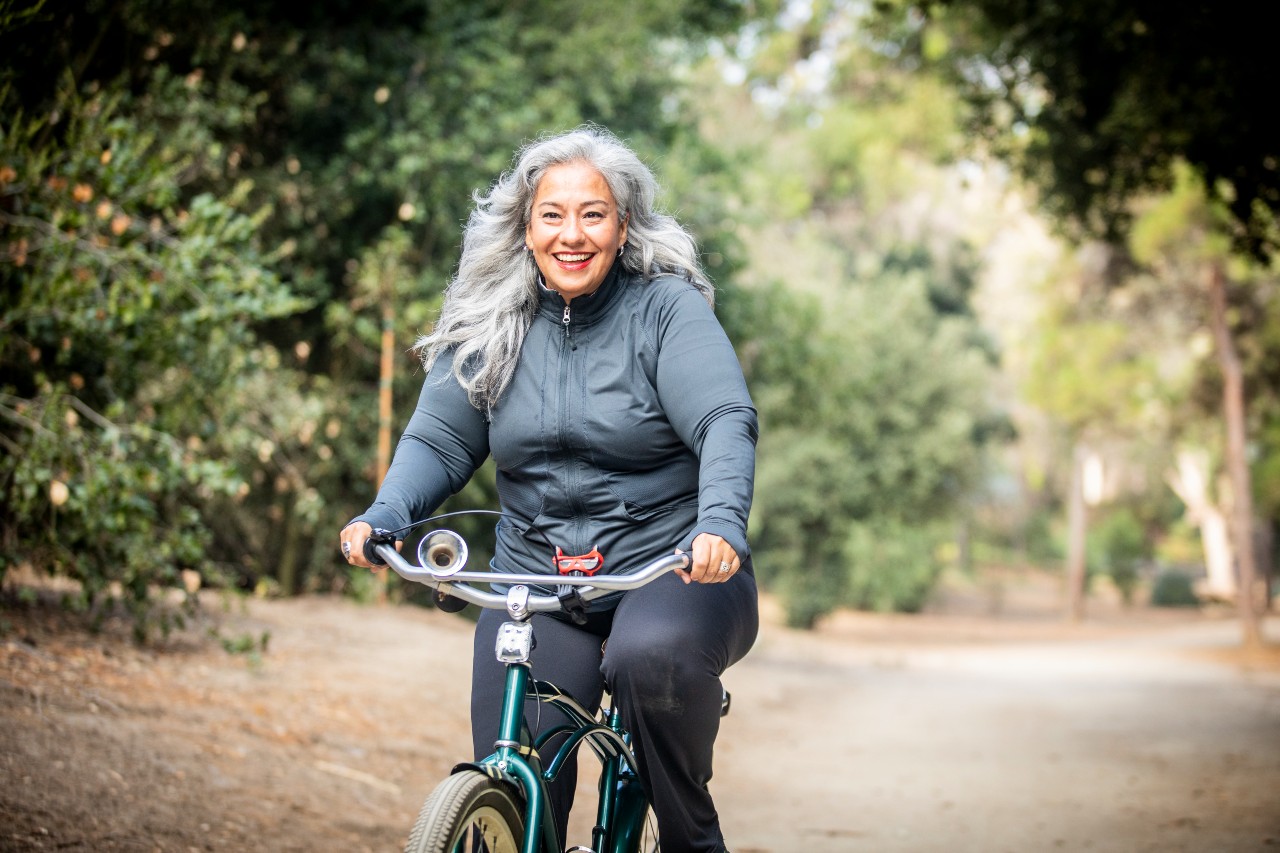Study: Life Plan Communities Boost Life Satisfaction

Retirement is often thought of as the time to live your best life by doing whatever it is your heart desires. While there are a variety of retirement lifestyles available, there is one that has been proven to boost your happiness and quality of life. That’s right. According to the Mathers Institute’s landmark Age Well Study, older adults who choose a Life Plan Community are happier and more fulfilled than those who don’t.
What is the Age Well Study?
Designed in collaboration with Northwestern University, the Age Well Study is the only national longitudinal study evaluating the impact of living in a Life Plan Community on residents’ cognitive, physical, and psychosocial health and well-being. When the survey was launched in 2018, The Age Well Study focused on three components of health:
- Self-reported health
- Physical activity
- Healthy diet
NOTE: A longitudinal study is a type of research model that involves repeated observations of the same variables over long periods of time.
Year One Results
In year one, the Age Well Study compared the wellness outcomes of older adults living in Life Plan Communities vs. the community-at-large. 5,148 residents from 80 Life Plan Communities participated in the survey, and here are some of the results:
- Self-Reported health: On average, Life Plan Community participants rate their health between “good” and “very good,” which is better than older adults in the community-at-large.
- Number of chronic conditions: Life Plan Community participants have, on average, about two chronic health conditions diagnosed by a doctor, such as high blood pressure or diabetes. The number of chronic health conditions is significantly lower for residents of Life Plan Communities compared to older adults in the community at large.
- Mood: Overall, Life Plan Community participants’ moods were generally positive over the last 30 days, and they tend to experience a more positive mood compared to the community-at-large group.
- Optimism/pessimism: Overall, Life Plan Community participants have high levels of optimism and low levels of pessimism compared to the community-at-large comparison group, which suggests they have a positive outlook about the future.
- Stress: On average, Life Plan Community participants experience fairly low levels of stress, which suggests that they feel capable of handling current challenges in their lives.
- Intellectual wellness: Intellectual wellness involves expanding knowledge and skills through a variety of resources, including creative activities, which contributes to maintaining cognitive function. 96% of Life Plan Community resident respondents reported reading a book or newspaper at least once per week.
- Social wellness: Social wellness emphasizes creating and maintaining healthy relationships by talking, sharing interests, and actively participating in social events. 69% of residents reported that moving to a Life Plan Community “somewhat” or “greatly improved” their social wellness.
- Physical wellness: Physical wellness refers to regular engagement in physical activity, maintaining a healthy diet, and appropriate utilization of health care, as well as engaging in healthy behaviors such as getting enough sleep and maintaining personal safety. The average number of chronic health conditions reported by Life Plan Community residents was fewer than two.
Year Three Results
In 2020, the study focused on factors associated with resident happiness and life satisfaction — both of which are associated with important outcomes. These factors include better physical and mental health, along with more positive social interactions. 4,191 residents from 122 Life Plan Communities participated in the survey. Here’s what the study found:
Social/communal factors and happiness and life satisfaction
- Loneliness: Residents with greater loneliness were less happy and less satisfied with life.
- Social cohesion: Residents with a greater sense of social cohesion in their communities were happier and more satisfied with life.
- Community belonging: Residents with a greater sense of community belonging were happier and more satisfied with life.
- Religiosity: More religious residents were more satisfied with life, but religiosity was not significantly related to happiness.
- Spirituality: More spiritual residents were happier, but spirituality was not significantly related to life satisfaction.
Health and happiness and life satisfaction
- Self-reported health: Residents with better self-reported health were happier and experienced higher life satisfaction.
- Physical activity: Greater physical activity was associated with greater happiness, but it was not related to life satisfaction.
- Healthy diet: Residents who indicated that they have healthier diets tended to be happier and more satisfied with life.
Satisfaction with life domains
Approximately 92% of respondents were highly satisfied (either “very satisfied” or “completely satisfied”) with the place where they live, 90% were highly satisfied with the city or town where they live. Most respondents were also highly satisfied with their daily life and leisure (85%), financial situation (82%), and family life (79%) Respondents reported lower satisfaction with health, with 60% highly satisfied.
Satisfaction with a senior living community
91% of respondents were “completely” or “very” satisfied with their senior living community.
Overall Age Well Study Findings
The latest report from the study examines changes in the health and wellness of residents over five years compared to older adults from the community at large. The findings include:
- Life Plan Community residents continued to report better physical, emotional, intellectual, social and vocational wellness than their community-at-large counterparts.
- From years one to five, social contact significantly increased for residents.
- Overall engagement in intellectual activities significantly increased for residents (including increased writing and attending education) and decreased for older adults in the community at large.
See the Benefits of a Life Plan Community for Yourself
If you’re looking to live your best life, explore Lake Seminole Square and see the advantage of moving to our active and engaging community. To schedule your personal tour, use our Community Assistant or contact us here.




